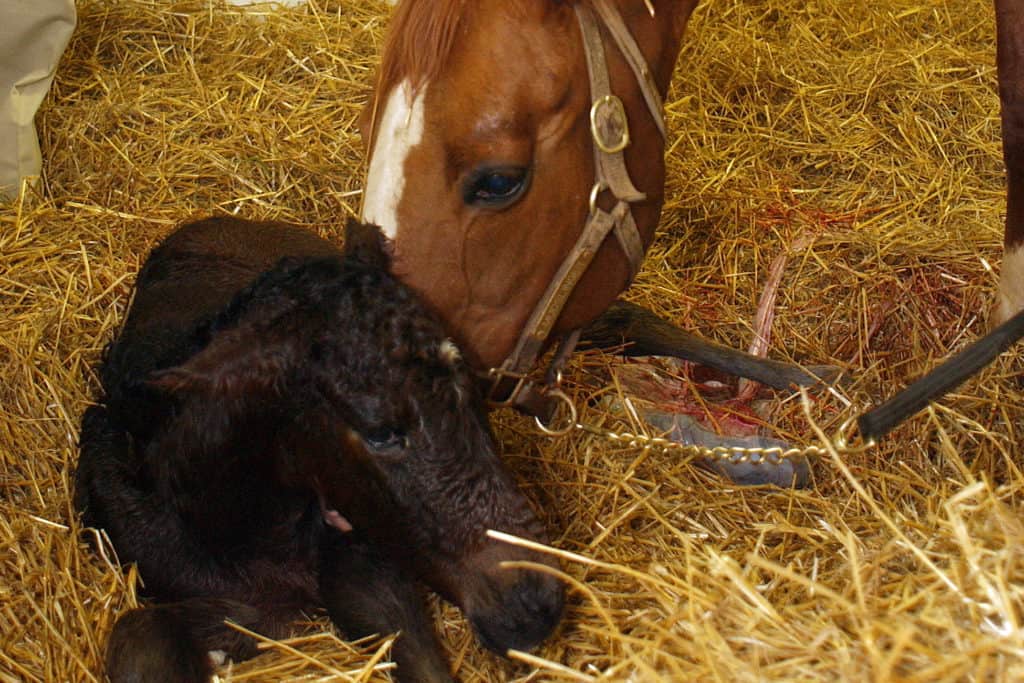
Breeding Soundness Exams for Stallions
A stallion must be in good physical condition and not overweight at the start of the breeding season.

A stallion must be in good physical condition and not overweight at the start of the breeding season.

Owners or caretakers should be prepared for emergencies when mares are scheduled to foal.
Genomics is in its infancy, and we have a lot to learn. But have no doubt, its impact on equine infectious diseases will be as great as that of vaccination and antibiotics.
Testing options include a comprehensive coat color package and a comprehensive disease diagnostic package.

Epigenetics explains inherited traits that might skip a generation or appear spontaneously.

Understanding genetic determinants for health conditions can help us identify and manage predisposed horses.
What is the correct age to breed a mare for the first time? I have strongly c
Could a guttural pouch infection be the reason for a broodmare to lose an embryo at two months?
Advances in the field of genetics are especially beneficial to those trying to understand equine disease.
Topics discussed included induction of ovulation, estrus behavior, and suppression in the performance horse.
TheHorse.com’s webinar on late-term mare and foal care is now available for viewing on demand.

Breeders must work closely with their veterinarians, optimize mare care for her health and that of her foal, offer any help that’s needed during foaling, and provide the care the young foal needs for the best possible start in life.
Topics covered in the webinar will include late-term mare care, foaling, and newborn/young foal care.
Precise timing and specialized tools are the mainstays of successful equine insemination.
Learn about endometritis, what causes it, and what veterinarians can do to treat the condition.
Topics include foaling emergencies, equine strangles, hind limb lameness, and diagnosing neurologic horses.
Stay on top of the most recent Horse Health news with
"*" indicates required fields